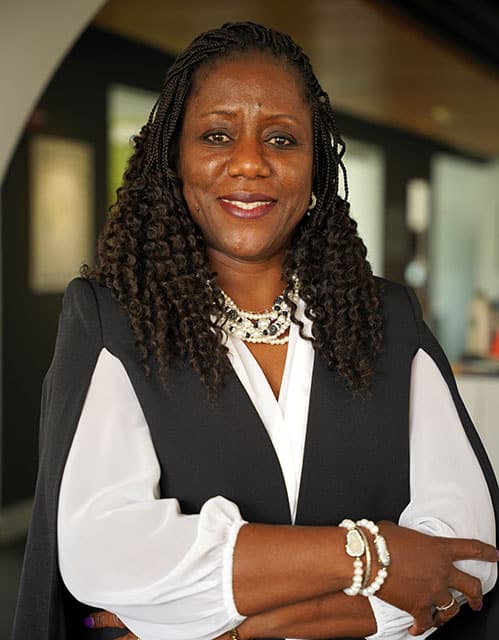A Message from RRI President, Solange Bandiaky-Badji

Dear Friends,
I am delighted to share with you RRI’s 2022 annual report—a brief snapshot of our achievements from this past year.
Globally, we saw significant developments in 2022, marked by a continued increase in recognition for the role played by Indigenous Peoples (IPs), local communities (LCs) and Afro-descendant Peoples (ADPs) in climate and conservation action. Donors and philanthropies formalized new funding commitments for these groups and proponents of voluntary carbon markets created “high integrity” frameworks to safeguard human rights.
However, the translation of these commitments into clearly defined actions remains an ongoing challenge. Despite growing calls for rural and forest communities’ involvement in decisions that affect them, their voices remain peripheral to these decisions’ design and implementation. For example, market-based approaches to climate action are mired in unclear costs and benefits for communities or the environment. Few countries have adequate legal frameworks to support the recognition of communities’ rights to carbon in their territories, and large multilateral initiatives have yet to meaningfully support their proposed solutions. In addition, most of climate funding committed for communities has yet to reach their initiatives. By the end of 2022, their projects had received just 7 percent of the USD 1.7 billion pledged for IPs and LCs at the UNFCC Conference of the Parties (CoP26). In fact, most of current climate and conservation finance fails to reach IPs and LCs—as found in our Funding with Purpose study published in 2022.
In parallel, the global food crisis fueled by climate shocks, the war in Ukraine, and the ongoing Covid-19 pandemic continued to put communities across the global South at risk of starvation and climate-induced droughts ravaging food systems in the Horn of Africa and other ecologically sensitive pockets. At CoP27, which focused on climate loss and damage, Indigenous and community delegates joined photo ops but were largely excluded from summit negotiations. Indigenous representatives were less than 1% of the 40,000 delegates in attendance. This exclusion from dialogues that remain dominated by the fossil fuel industry limited their impact in climate adaptation and mitigation planning.
Despite repeated public and private sector commitments to involve local peoples in protecting the world’s remaining intact landscapes, fortress conservation continued to thrive. This was clearly illustrated in a published declaration by IPs and LCs at the Africa Protected Areas Congress in Kigali in July. At the UN Convention on Biological Diversity in Montréal in December, IP and LC delegates called for the integration of their rights, knowledge, and financing to achieve the global 30×30 target. But while the language around their rights in the Kunming-Montréal Global Biodiversity Framework text formalized at CoP15 mentioned community rights-based conservation, the exact role of these groups was contested.
Notwithstanding these roadblocks, RRI found much to celebrate in 2022. Within the vastly different cultural and political contexts in our coalition, we continued to find common ground in our struggles against land grabbing, dismantlement of environmental and human rights safeguards, shrinking democratic spaces, and women’s underrepresentation. We found that our most powerful tools remain coordinated civil society action backed by legal and policy research cultivated by RRI over the years.
This report gives a snapshot of just some of our coalition’s pivotal successes that give us hope and vigor, particularly as we embark upon our new 5-year Strategic Program. These achievements reinforce our promise to radically accelerate progress toward a more just, equitable, and sustainable future.
I remain deeply grateful for your continued support and faith in our mission.
In solidarity,
Dr. Solange Bandiaky-Badji
President, Rights and Resources Group